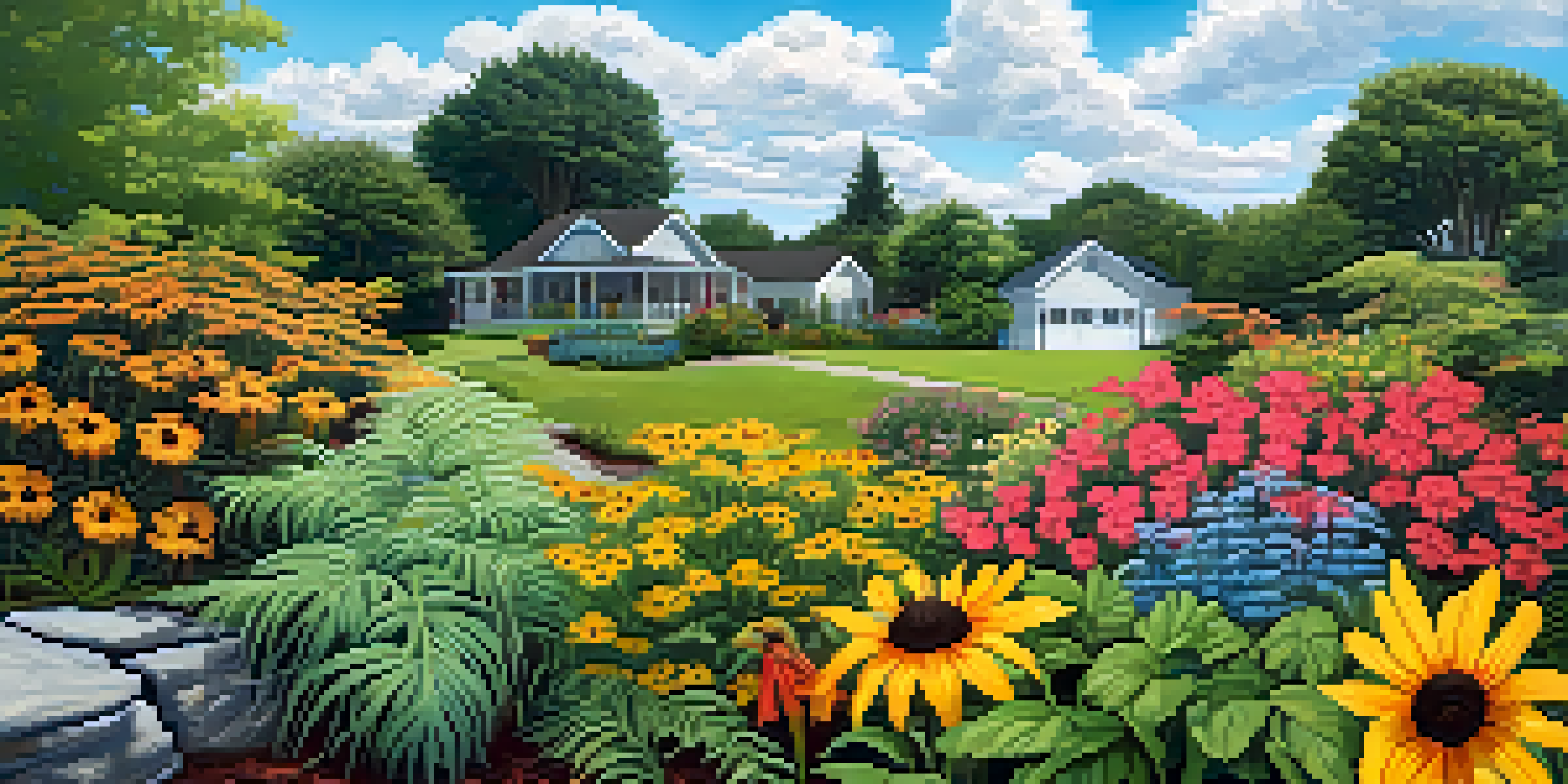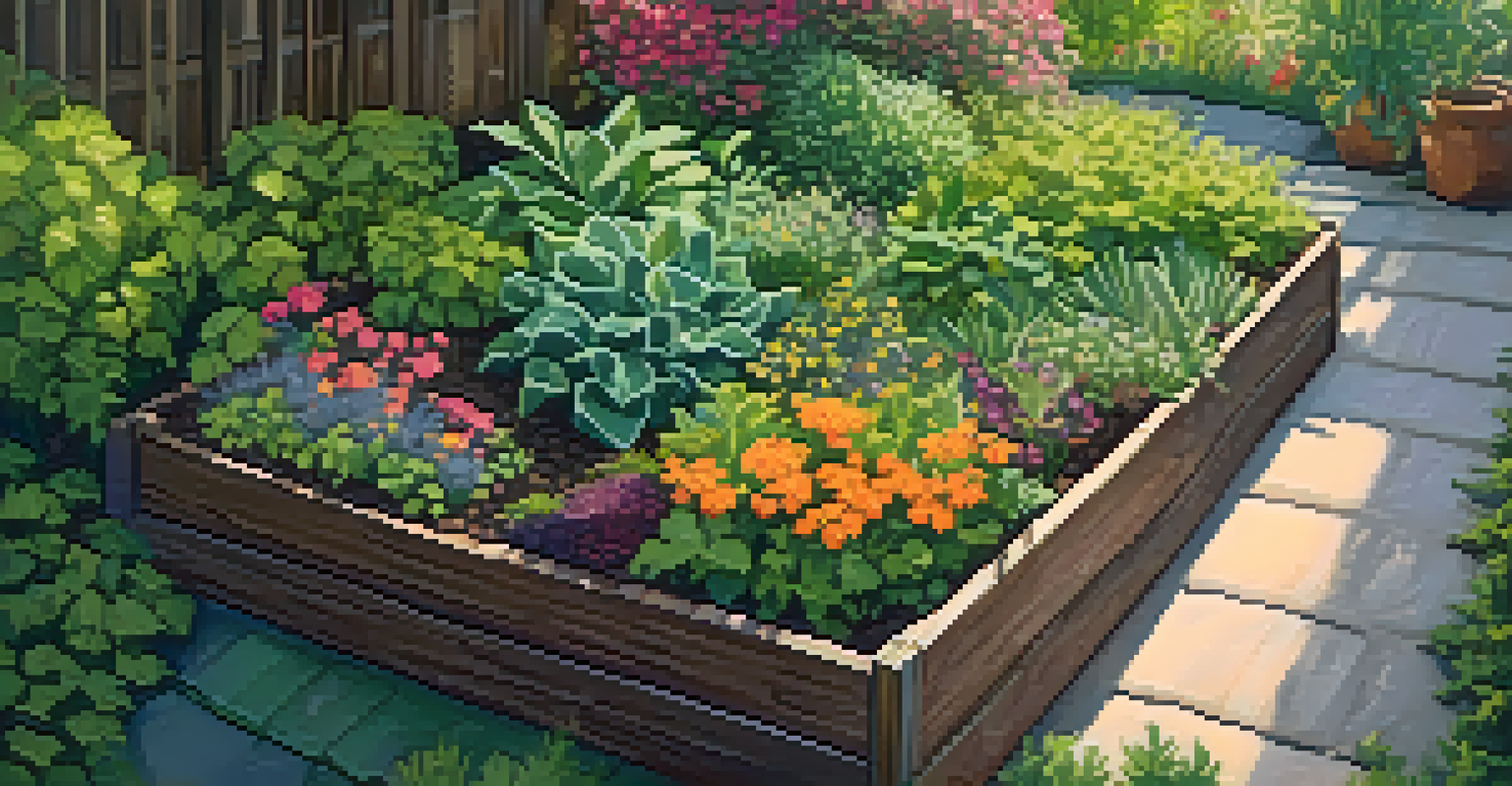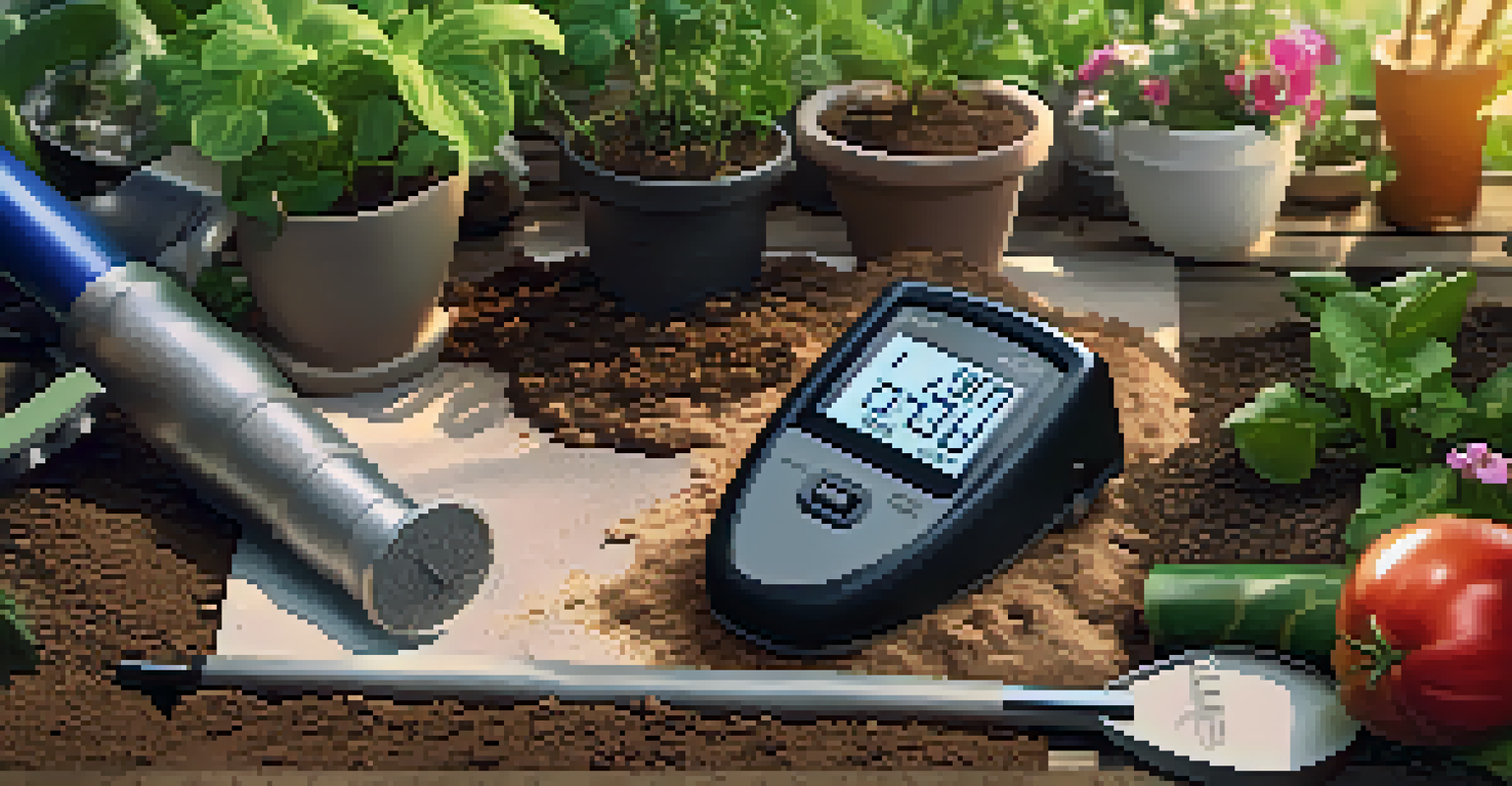Essential Gardening Tips for Charlotte's Humid Climate

Understanding Charlotte's Humid Climate and Its Challenges
Charlotte's humid subtropical climate can be both a blessing and a challenge for gardeners. With hot summers and mild winters, plants can thrive, but they also face issues like excessive moisture and heat stress. Understanding these climatic patterns is essential for making informed gardening choices.
Gardening is a way of showing that you believe in tomorrow.
The humidity in Charlotte often leads to increased fungal diseases and pests, which can be detrimental to plant health. Therefore, awareness of which plants are more susceptible to these conditions can help you avoid potential pitfalls. For instance, while some tropical plants may flourish, others might struggle.
Moreover, timing is crucial in a humid climate. Knowing when to plant, water, and fertilize can significantly impact your garden's success. By adapting to the local weather patterns, you can create a resilient garden that flourishes despite the heat.
Choosing the Right Plants for Humidity
Selecting plants that thrive in humid conditions is one of the best strategies for gardening success in Charlotte. Native plants, such as coneflowers and black-eyed Susans, are particularly well-adapted to the local climate. These plants not only require less maintenance but also support local wildlife.

Consider incorporating tropical plants like hibiscus or ferns that love the humidity and can add vibrant color to your landscape. However, be mindful of their water needs, as some may require more care than others. Striking the right balance is key to creating a thriving garden.
Choose Plants for Humid Climate
Selecting native and tropical plants that thrive in humidity can enhance your garden's resilience and beauty.
Additionally, think about using raised beds or containers for some plants. This approach can help with drainage, preventing waterlogged roots, which can be a significant issue in Charlotte's climate. The right plant selection and placement can make all the difference.
Watering Wisely in Humid Conditions
Even though Charlotte's humidity can create a moist environment, proper watering is still essential. Overwatering can lead to root rot and other diseases, while underwatering can stress plants. It's crucial to find the right balance to keep your plants healthy.
The best time to plant a tree was twenty years ago. The second best time is now.
A good rule of thumb is to check the soil moisture before watering. If the top inch of soil is dry, it's time to water. Early mornings are the best time to water, as this allows plants to absorb moisture before the heat of the day sets in, reducing evaporation.
Using mulch can also help retain soil moisture and regulate temperature. Organic mulches, like straw or wood chips, not only improve moisture retention but also add nutrients to the soil as they decompose. It's a win-win for your garden!
Managing Pests and Diseases in Humid Weather
The high humidity in Charlotte can create a perfect breeding ground for pests and diseases. Regular monitoring of your plants is essential to catch any issues early. Look for signs of distress, such as wilting leaves or unusual spots, which could indicate a problem.
Implementing organic pest control methods, like introducing beneficial insects or using neem oil, can be effective in managing pests without harmful chemicals. These natural solutions often work well in humid climates, as they target specific pests and are less likely to harm beneficial organisms.
Water Wisely to Prevent Issues
Finding the right balance in watering practices is crucial to avoid root rot and ensure healthy plant growth.
Additionally, proper spacing between plants can improve air circulation, reducing the likelihood of fungal diseases. Incorporating companion planting, where certain plants are grown together to deter pests, can also be beneficial. Being proactive is key to a healthy garden.
Utilizing Soil Test for Optimal Growth
Conducting a soil test is a smart step for any gardener, especially in a humid climate like Charlotte's. Soil tests can reveal pH levels and nutrient content, helping you understand what your garden needs for optimal growth. This information can guide you in selecting the right amendments and fertilizers.
In humid conditions, soil can sometimes become compacted or overly acidic, affecting plant health. By adjusting your soil based on test results, you can create a more suitable environment for your plants. This foundation is crucial for long-term gardening success.
Consider testing your soil every few years to keep track of its health. This proactive approach allows you to make informed adjustments and ensures your garden remains vibrant and productive throughout the seasons.
Embracing Seasonal Planting Strategies
In Charlotte's humid climate, understanding seasonal planting strategies can greatly enhance your gardening success. The growing season typically lasts from spring to fall, allowing for a variety of plants to thrive. Planning your planting schedule around these seasons ensures that your plants have the best chance to flourish.
For instance, early spring is ideal for planting cool-season crops like lettuce and peas, while summer is perfect for warm-season varieties such as tomatoes and peppers. By aligning your planting with the seasons, you can maximize productivity and enjoy a bountiful harvest.
Sustainability is Essential
Incorporating sustainable practices like composting and using native plants helps create a self-sustaining garden ecosystem.
Moreover, rotating crops each season can prevent soil depletion and reduce pest and disease buildup. This practice not only enriches the soil but also keeps your garden dynamic and interesting. Seasonal strategies create a rhythm that can enhance your gardening experience.
Creating a Sustainable Garden in Humid Conditions
Sustainability is key to thriving gardens, especially in a humid climate like Charlotte's. By incorporating practices such as composting and rainwater collection, you can create a self-sustaining garden ecosystem. Composting not only reduces waste but also enriches your soil with vital nutrients.
Implementing native plants is another sustainable choice. These plants require less water and maintenance, making them ideal for humid environments. They also provide habitats for local wildlife, contributing to a balanced ecosystem.

Lastly, consider reducing chemical usage in your garden. Instead, focus on natural pest control and organic fertilizers. This approach not only benefits your plants but also protects the environment, making your gardening efforts more sustainable and responsible.